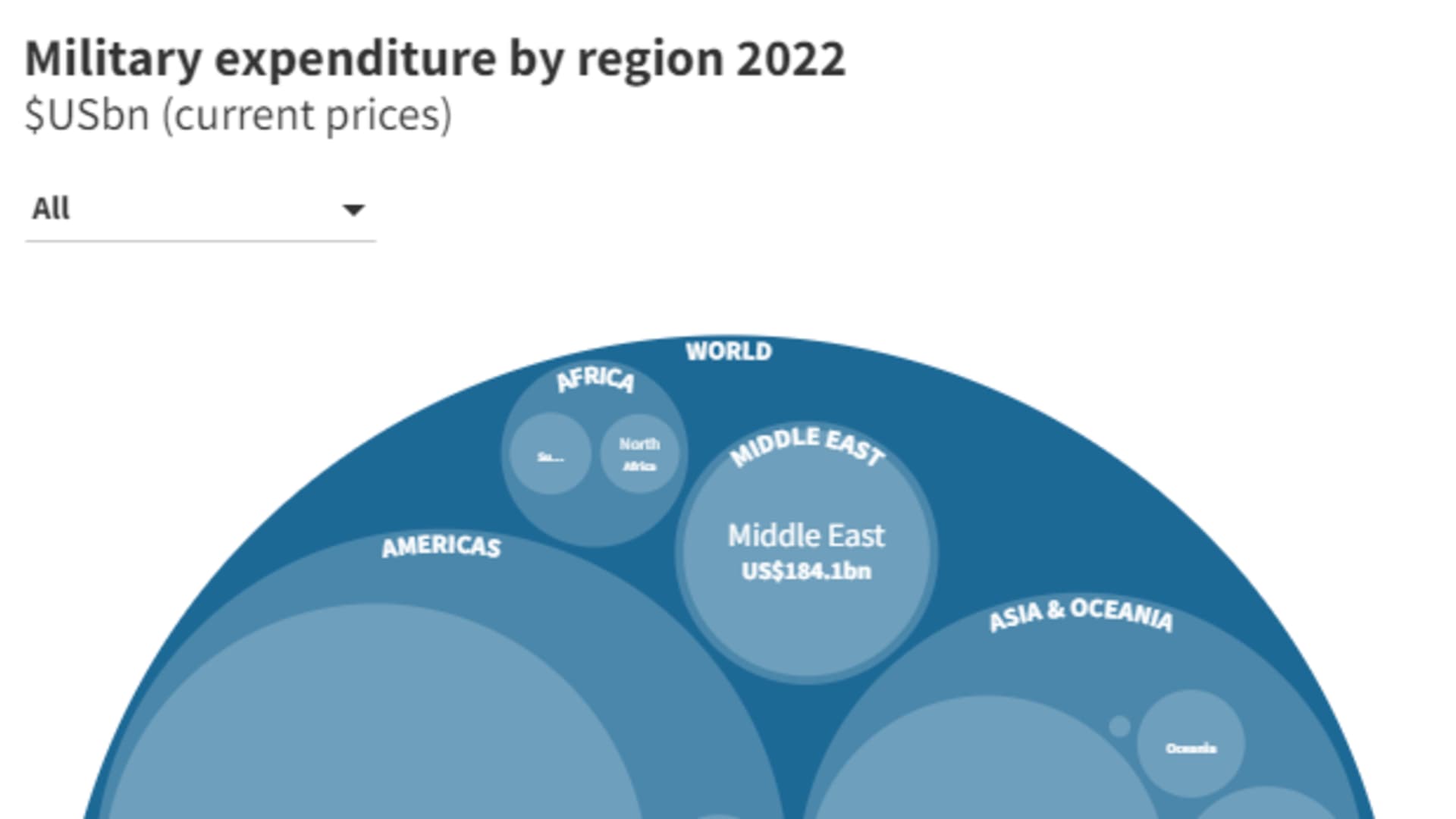
- NATO members on Saturday weighed the U.S.'s possible withdrawal from the military alliance if Donald Trump returns to the White House.
- Trump's one-time presidential rival Hillary Clinton said he would waste no time in quitting NATO if re-elected in November.
- NATO Secretary-General Jens Stoltenberg was more sanguine, saying he believes the U.S. will remain "a staunch and committed NATO ally" regardless of the election outcome.
MUNICH, Germany — NATO members on Saturday weighed the U.S.' possible withdrawal from the military alliance if Donald Trump returns to the White House, with Hillary Clinton saying he would waste no time in quitting if re-elected.
Clinton urged delegates at the Munich Security Conference to take her one-time presidential rival's tough talk "literally and seriously" as anxiety mounts over the future of the U.S.-led pact.
"He will pull us out of NATO," Clinton told attendees during a lunchtime session.
Trump stoked fresh concerns over the U.S.' commitment to NATO last weekend when he said he would "encourage" Russia to attack any member that doesn't meet its spending targets. He has long criticized the alliance's failure to ensure members make good on their obligation to contribute 2% of gross domestic product to defense.
Amid such rhetoric, the U.S. Congress passed a bill in December aimed at preventing any U.S. president from unilaterally withdrawing from the alliance without congressional approval.
Money Report
U.S. Republican Senator Jim Risch, ranking member of the Senate Committee on Foreign Relations, on Saturday dismissed talk of the U.S. quitting NATO, saying: "We have answered that question."
"It would take a two-thirds vote in the United States Senate to get out — that is never going to happen," he told CNBC in Munich.
Feeling out of the loop? We'll catch you up on the Chicago news you need to know. Sign up for the weekly> Chicago Catch-Up newsletter.
Clinton said, however, that Trump could actually just refuse to fund the alliance. "The U.S. will be there in name only," she said.
Trump versus NATO
Concerns over the U.S. and Europe's continued military coordination have dominated discussions at this year's annual defense summit in Germany, as the specter of a second Trump presidency looms large and a contentious aid package for Ukraine hangs in the balance in the U.S. House of Representatives.
Dutch Prime Minister Mark Rutte earlier Saturday referenced constant "moaning and whining" at the event about the future of NATO under Trump.
"Stop moaning and whining and nagging about Trump," he said.
He was one of many European voices, including that of German Chancellor Olaf Scholz and Danish Prime Minister Mette Frederiksen, who said that Europe needed to become self-sufficient in the face of a more uncertain future with its closest diplomatic ally.
"No matter what happens in the U.S. ... we have to be able to protect ourselves," Frederiksen said.
Indeed, Germany's defense minister said that his country's commitment to spend 2% of GDP on defense should be just the start, noting that the threshold could rise to 3.5% if necessary.
NATO Secretary-General Jens Stoltenberg struck a more sanguine tone on transatlantic coordination, however, saying that believes the U.S. will remain "a staunch and committed NATO ally" whatever happens in the upcoming election.
"I expect that regardless of the outcome of the U.S. elections in November, the U.S. will remain a staunch and committed NATO ally," he told CNBC's Silvia Amaro. "It is in the security interests of the United States to have a strong NATO."
Stoltenberg acknowledged Trump's frustration with member spending, but said "that is now changing." On Wednesday, NATO announced that 18 of the alliance's 31 members will meet the 2% spending target this year.
NATO member countries first committed to minimum spending targets in 2006, but by 2014 only three had met the threshold.
The alliance will mark its 75th anniversary this year at an annual summit to be held in Washington in July. Senator Risch said he would like to see all members committing to meeting their target by that point.
"Talk about it happening years in the future isn't now, and we're always interested in now," he said. "That's helpful to the relationship: everybody keeping the commitments that they made."







